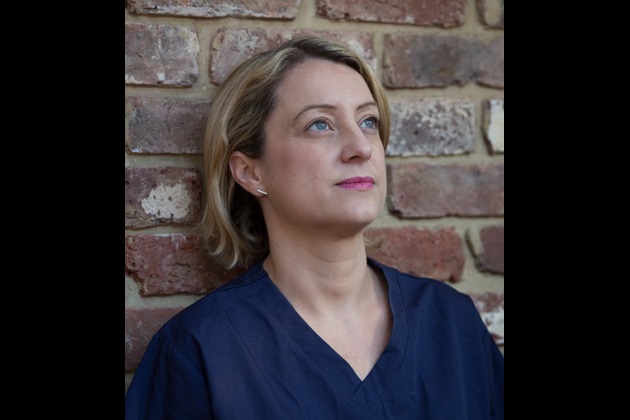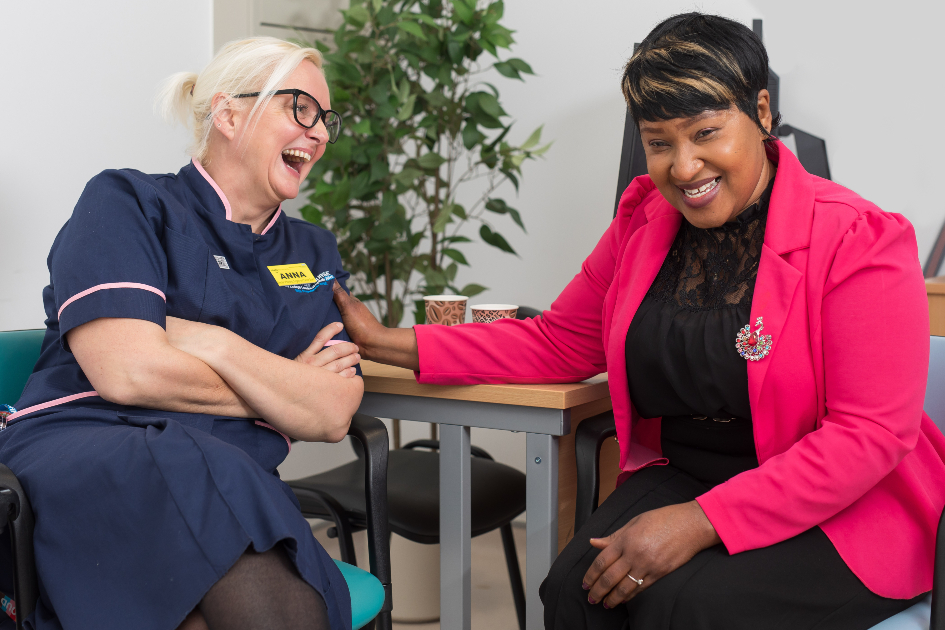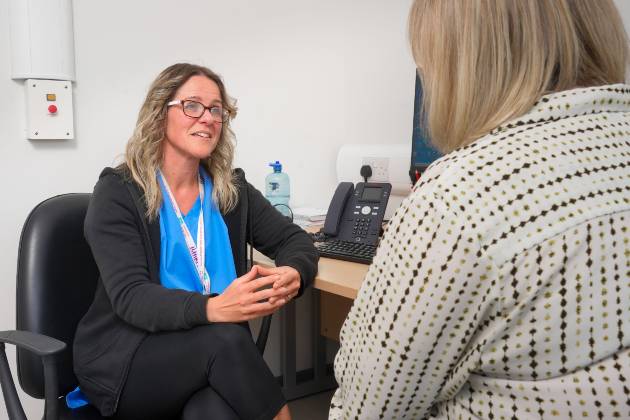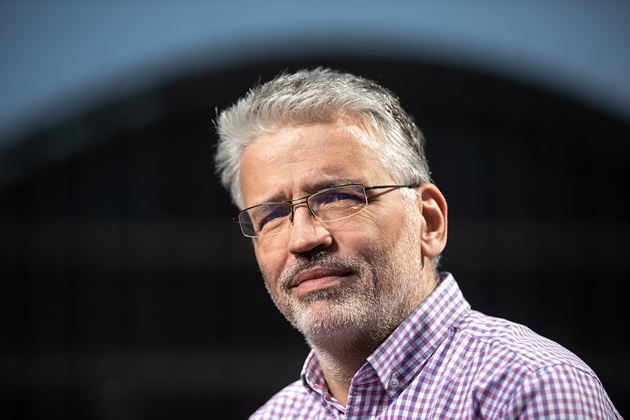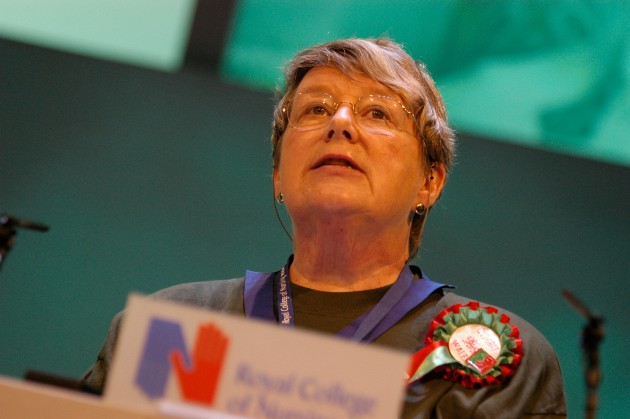Bestselling author Christie Watson on how her new book aims to inspire hope and show the true value of nursing
The Courage to Care is the latest book by bestselling author and nurse Christie Watson. In it she reveals the remarkable extent of nurses’ work, through poignant anecdotes that show the compassion, skill and leadership needed to nurse. Each chapter takes you on a journey, drawing on Christie’s own experiences, to showcase the full diversity and impact of the profession.
“It’s about exceptional nurses everywhere, in every setting, and the difference they make to lives of colleagues, patients and families, including my own,” she says. But the book is more than simply a celebration. It’s about hope, love, courage and human nature. And it poses challenging questions about how nursing is valued, particularly in the context of COVID-19.
Christie, who is a patron of the RCN Foundation, spent two years writing the book after travelling widely to meet nurses from all walks of life. It follows publication of her first non-fiction work, The Language of Kindness, in 2018 and is being released just months after she returned to frontline nursing during the peak of the pandemic.
“I wrote my previous book from the perspective of a hospital nurse, in uniform,” she says. “But what struck me as I was publicising it is that there is a whole world of nursing that we don’t hear much about. This book shows how we benefit from nurses’ expertise not just in our hospitals, but in our schools, on our streets, in prisons, hospices and care homes. As I wrote it, its focus expanded, so it became not just about nurses but about the strength and bravery of the patients and families we look after.”
That’s shown powerfully in the first chapter, where Christie describes her experiences of providing palliative care, including her interactions with her father after he is diagnosed with incurable cancer. “Like my patients, my dad teaches me that hope can exist, even in the darkest of places, because we are human and destructive and beautiful. And we have love,” she writes.
‘There is nothing basic about care’
As Christie goes on to write with sincerity about a profession she clearly loves, different lives, thoughts and perceptions intermingle and blur. One moment of consciousness leads to the next like poetry. The effect is an intimate insight into Christie’s life, and of those nurses that touch hers.
The gentleness of a community nurse, going to extra lengths to make her patients comfortable and feel dignified, for example, of which Christie writes: “There is nothing basic about care.” And her reflections of working with children with complex needs: “I am learning how powerful it is to save a life,” she muses. “And I am learning how powerful it is to give meaning to a life. Both actions save lives, in the end. But the latter saves many lives at once.”
We must stand together to fight for better nurse representation, safe staffing and fair pay
Releasing the book now, of course, enables it to promote debate about the impact of nursing, and how it should be rewarded and recognised as public perception of the profession shifts.
“I think people have started to hold nursing in higher regard as a result of the pandemic,” says Christie. “But this doesn’t necessarily extend to policy makers. The evidence of that for me is that there has been no nurse on the Scientific Advisory Group for Emergencies (SAGE) throughout the pandemic. I find that horrifying and feel very strongly that we wouldn’t have had such catastrophic loss of life in care homes had there been a nurse on that group.
“So although my book tells a story, and I hope it resonates with people, if there’s one thing I’d like readers to take away from it, it’s that the government perhaps doesn’t feel as they do about the importance of nurses and that we must stand together to fight for better nurse representation, safe staffing and fair pay.”
Life is about kindness and compassion and community, caring for each other and having the courage to care
While the book does make a political point, it doesn’t make for a difficult read. Instead it aims to inspire and provide hope. “Although, obviously, it’s a book to help raise awareness, my primary aim is to move people, be that laughing or crying,” says Christie. “It’s about using language and words to connect with people. Ultimately, it’s about highlighting the importance of compassion and community and holding on to hope during this terrible time of suffering.”
As for Christie’s own experience of working during the pandemic, it has had a lasting impact on her and made her contemplate the big questions in life.
While she says it would be disingenuous to claim she played as big a part as other frontline nurses, she did spend time working in ICU as lead nurse for compassionate care at the Nightingale Hospital in London.
“I found even the small glimpse I got into the horror of this pandemic incredibly traumatising,” she says. “It was dreamlike and surreal. This disease is absolutely vile, scary, terrifying.
“Like all nurses, I came home after a long day, scrubbed myself before coming in the door, threw everything in the washing machine on a hot wash, went into the shower, had a cry and then hugged my children. And the whole time I was thinking, please god I hope I haven’t brought anything home with me.
“It’s like nothing I’ve ever known in my entire nursing career. I think nurses’ mental health during and after this pandemic is something that will require careful thinking about, because these are traumatising times for nurses and uncertain times for us all.
“We’re all suffering from grief and loss. Every single one of us, collectively. There are so many worries and anxieties. But there is a case for optimism long term. And that optimism comes from a shift in our values. We’ve come to realise that things are not important, looks are not important.
“Life is about kindness and compassion and community, caring for each other and having the courage to care. We’ve all come to realise that family is the most important thing. That’s what I hope the legacy of this book is.”
In Christie’s own words…
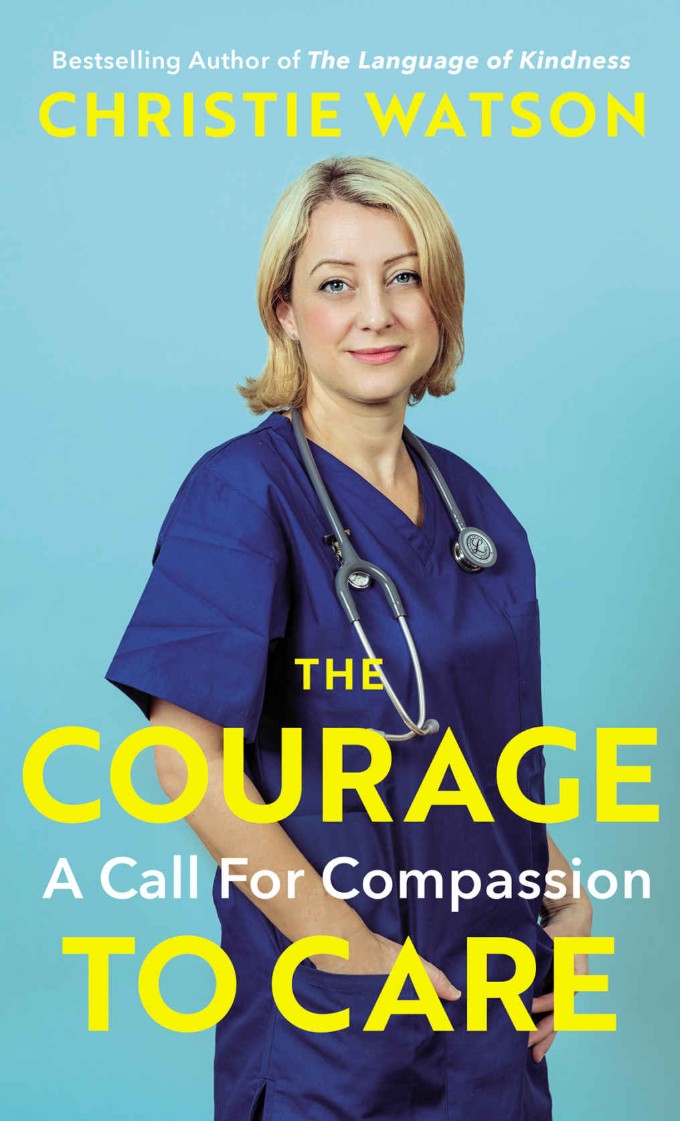
I have been talking and writing about the importance of nurses for many years: how undervalued they have been; how overworked and underpaid; and underlining just how vital nurses are to society. But of course, I had no idea what was to come. None of us did. I was making final edits to The Courage to Care when COVID-19 changed the world, perhaps forever.
This is a time of profound reflection for all of us. We must pause and mourn, and grieve for those who have died during this awful virus. Perhaps we can continue to honour them – and all those frontline workers who lost their lives for us – by taking care of our neighbours, our communities, and the vulnerable, including those who are unable to work and those who are no longer working. Those in need. People have been thinking of other families, as well as their own. We must hold onto that: the courage to care. Compassion for others is how we will be judged. And it is how we should be judged. This is a time for all of us to think about community, how delicate life is, and what life now means. We will be changed by this, all of us. And the search for meaning has only just begun.
I had no idea how poignant and timely this book would be. Nurses have always been at the forefront of society, and that, perhaps, is finally being acknowledged. It is nurses who are saving lives during all of this, and the lack of critical care nurses has been one of the most significant challenges. It is nurses who are holding the hands of our loved ones as they are dying, who are with them when we can’t be there, reminding us that we are never alone, not even now. And it will be nurses who bear the weight of COVID-19 long after the peak. Because, for those who survive, this is just the beginning. The level of support, rehab and expert care needed by so many people is almost unimaginable, and the fallout for those who have suffered – due to the impact of COVID-19 – with other illnesses and diseases is beyond measure. Those with cancer, long-term conditions, mental illness. An entire generation of children. Our elderly. Nurses have always fought for social justice and human rights, and COVID-19 has shown up the vast inequalities and discrimination across our country. It will be those who already suffer most who will suffer more, and nurses will care for and champion them, regardless.
Yet nurses – predominantly women – remain undervalued even now.
The absence of any nurse on the COVID-19 SAGE advisory panel, for example, is – or should be, surely – unacceptable to all of us. The reason, I am told, is that SAGE is made up of scientists. But, of course, nurses are scientists. And writers. And academics and philosophers and leaders and researchers and artists and experts and technicians and practitioners and innovators and entrepreneurs and influencers and statisticians and workforce modellers and expert witnesses and advanced practitioners and crisis managers. Nurses are consistently cited by the public as the most trusted profession.
It is high time that nurses of every background have a seat at the political table – for all our sakes. Nurses have never been more important.
This is an extract from the introduction of The Courage to Care: A Call for Compassion by Christie Watson published by Chatto and Windus, £16.99. RCN members can get 20% off the usual price if buying from Waterstones, using the code: courage.
About Christie
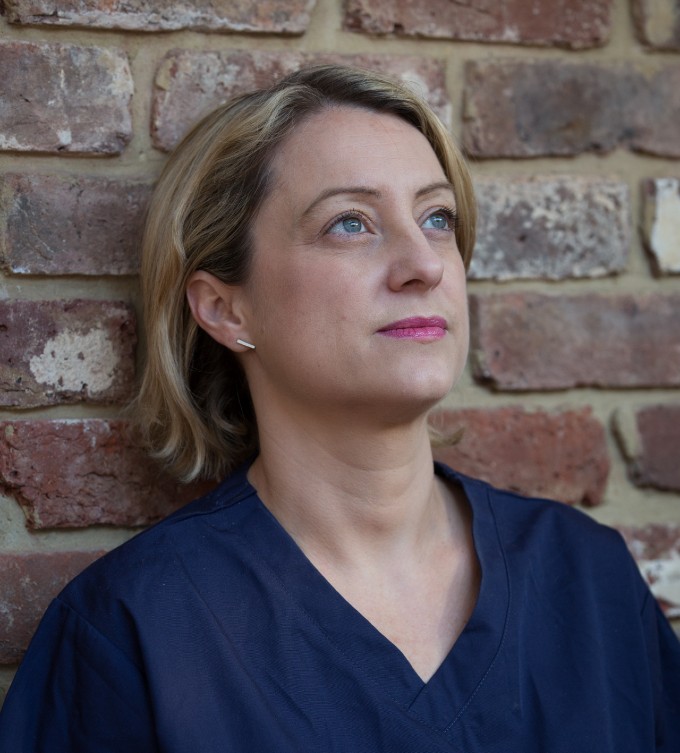
Christie was a nurse for over 20 years. In March 2020 she joined the COVID-19 temporary register and worked in critical care during the peak of the pandemic.
She published her first novel, Tiny Sunbirds Far Away, in 2011 and released her second novel, Where Women Are Kings, in 2013 both to critical acclaim. Her non-fiction debut, The Language of Kindness: A Nurse’s Story, was published in 2018 and was a number one Sunday Times bestseller. It has been translated into 23 languages and Christie is currently working on a television adaptation and theatre production.
Christie holds an honorary Doctor of Letters for her contribution to nursing and the arts and is Professor of Medical and Health Humanities at the University of East Anglia.


